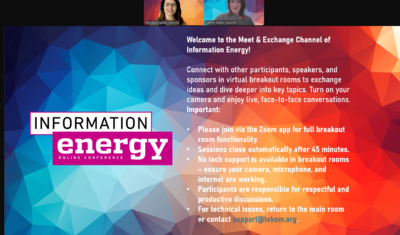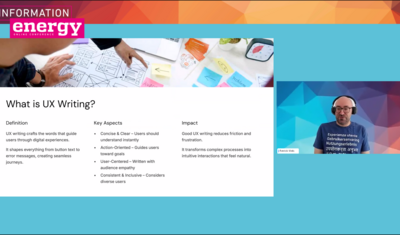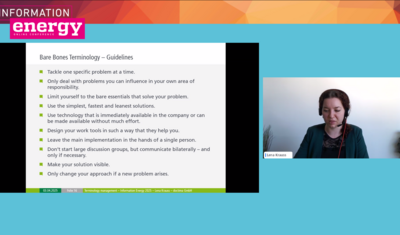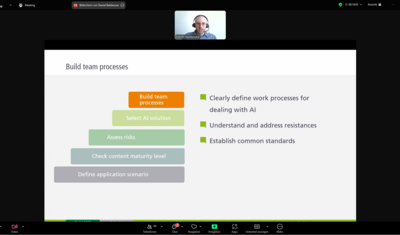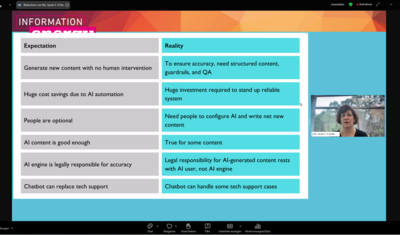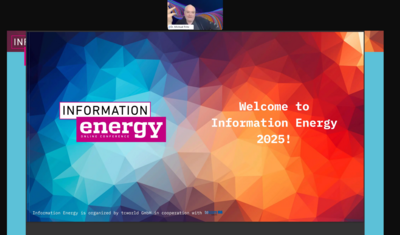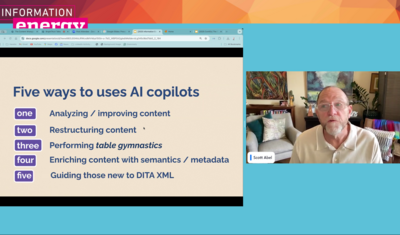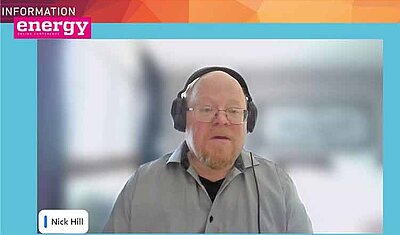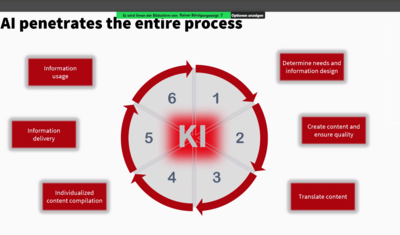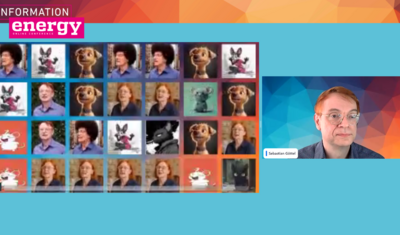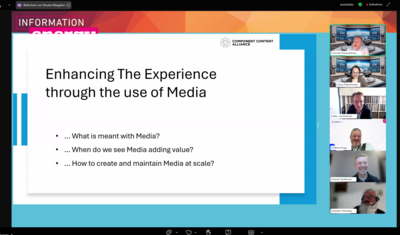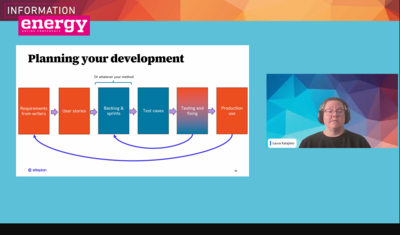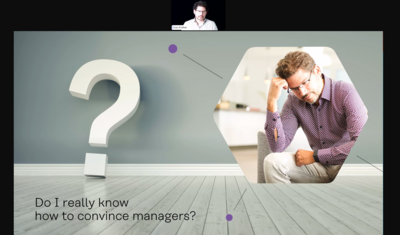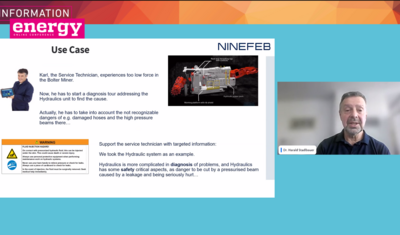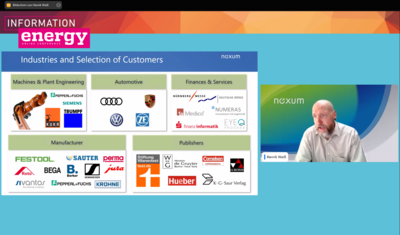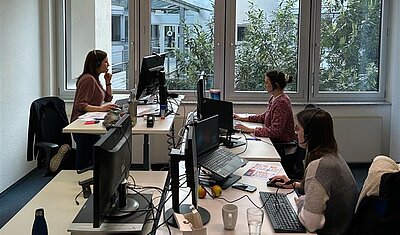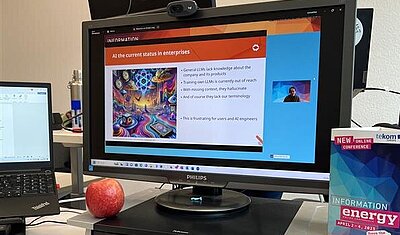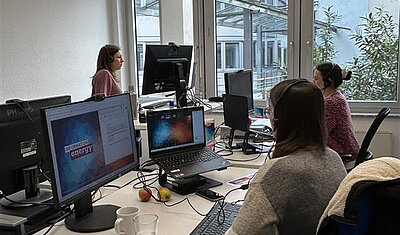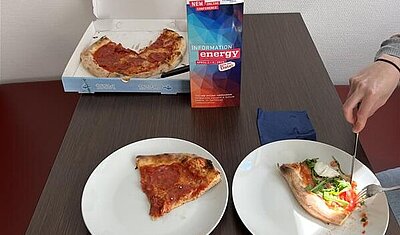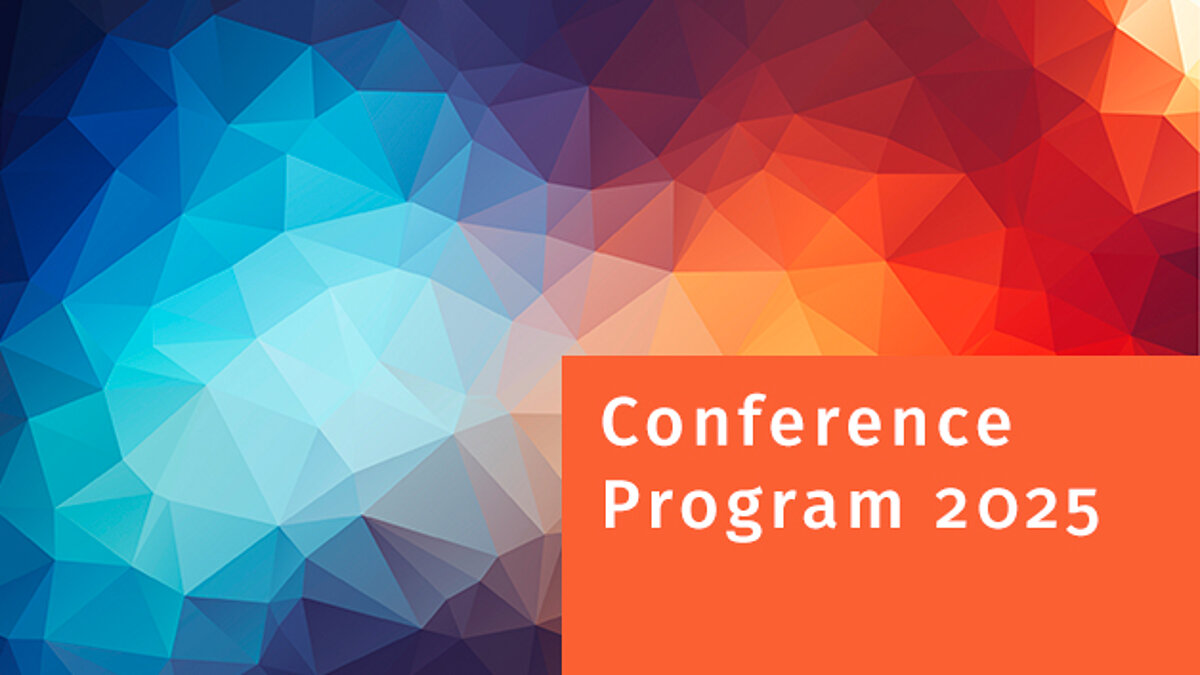
At the cutting edge of Technical Communication: Conference program 2025
Discover the top-notch, wide-ranging program of Information Energy 2025! Download the program 2025 as PDF.
A Recap of Information Energy 2025
A Successful Online Event
The Information Energy 2025 online conference, hosted by tcworld GmbH, has come to a close, leaving attendees with a wealth of ideas and new insights. The event brought together over 300 professionals from around the world, making it a truly global gathering. Attendees came from 28 nations, including Germany, Austria, Switzerland, the USA, Canada, Australia, Japan, China, Korea, Romania, Bulgaria, Hungary, the Czech Republic, Ukraine, Great Britain, Ireland, Finland, Norway, Sweden, Denmark, the Netherlands, Belgium, France, Spain, Portugal, Italy, Israel, and Turkey. With 45 presentations, workshops, tutorials, meetups, exhibitor showcases, and panel discussions, the conference covered a wide range of topics relevant to both industry experts and specialists in technical communication.
The impressive lineup of 55 speakers – all experts from the industry and specialists in technical documentation – ensured that each session was both informative and thought-provoking. Whether it was a detailed workshop on AI integration or a lively panel discussion on content management, every presentation offered valuable content for the attendees.
Here’s a look back at the key moments and highlights that made the conference a success.
Kick off: Breakfast Talk
The event started off with great anticipation, attracting attendees from diverse sectors, all eager to learn from industry leaders and engage with fellow professionals.
The first day began with a Breakfast Talk featuring Dr. Michael Fritz, Managing Director of tcworld, and Fabrice Lacroix, a serial entrepreneur and technology pioneer. The discussion revolved around the future of technical communication, with key points on handling AI in TC, the evolving role of DITA, and the importance of understanding taxonomy in the future of technical documentation. These insights set the tone for the exciting days ahead.
Diverse Formats: Engaging and Interactive
One of the standout features of the conference was the diversity of formats offered. Attendees had the chance to choose from a wide range of activities, including hands-on tutorials, interactive workshops, and thought-provoking panel discussions. These formats allowed for both in-depth learning and casual networking, making it easy for attendees to tailor their experience to their needs.
Popular Topics and a Glimpse of variety: AI, Accessibility, and Editorial Processes
Among the most frequently discussed topics were the integration of AI in technical documentation, improving accessibility in content creation, and streamlining editorial processes. Presentations like "Leveraging AI and New Technologies in Home Appliance Manuals" with Bomin Kim and Hanbit Lee and "Building an Accessibility-First Documentation Workflow" with Angel Petrov showcased how AI is transforming documentation, while accessibility-focused talks delved into creating inclusive content for all users.
Additionally, workshops on editorial processes, such as "Designing Editorial Processes Successfully" with Birgit Fuhrmann and Christoph Beenen provided attendees with practical strategies to enhance team efficiency and adapt to industry changes using design thinking and change management techniques. For example "AI: An Introductory Workshop on Prompt Engineering" with Nick Hill and Anastasiia Datsun featured three break-out sessions: The first focused on using AI in technical communication while maintaining quality and addressing required skills. The second discussed the future skills needed for technical communicators in the AI era. The third session explored how to ensure compliance with legal requirements when using AI for documentation.
Another insightful session was, for example Patrick Wels’ talk on "Cultural Empathy in UX Writing: Reaching Global Users Effectively." He emphasized the importance of cultural sensitivity in UX writing and explained how Hofstede’s cultural dimensions influence content perception. Wels also highlighted the distinction between translation and localization, illustrating with real-world examples how cultural misunderstandings can impact user experience. He concluded by presenting a practical framework, including cultural checklists and feedback loops, to help teams craft content that resonates with global audiences.
Scott Abel also delivered, with "Revolutionizing How Technical Writers Work: Five Ways to Leverage AI Co-Pilots", a compelling presentation on leveraging AI copilots in content development. He outlined five key applications: analyzing and improving content, restructuring content for clarity, reforming table gymnastics, enriching content with semantics, and guiding newcomers to DITA XML. Abel provided practical insights into integrating AI tools effectively, helping content creators produce more precise and user-centric materials. He concluded by recommending that everyone should optimize their content efficiently for their business and tailor the right AI copilots to suit their specific needs.
Lars Kothes presented "Convince the management: Investment in technical documentation", an engaging session focusing on change management and technological adoption within companies. Using the fictional character Emma, he illustrated the challenges employees face when convincing management to embrace new technologies. His talk highlighted the importance of clear communication, strategic persuasion, and demonstrating value to stakeholders. Through Emma’s journey, attendees gained practical insights into navigating internal resistance and successfully implementing innovative solutions.
Industry Insights and Future Directions
The conference also explored some of the most pressing topics in information technology and documentation. Discussions on automation, AI, and the evolving role of technical communicators provided a clear picture of where the industry is headed.
Keynotes and panels explored how new technologies are reshaping the way content is created, managed, and distributed. Experts discussed the growing importance of AI and machine learning in streamlining documentation processes while also addressing the challenges of maintaining quality and consistency across platforms.
For example the panel discussion "Enhancing the Experience Through Interactivity, Formalization & Media" with Wouter Maagdenberg and Kees van Mansom offered further insights into the future of content creation and AI. The panelists highlighted the importance of personalized texts, clarifying context, and structuring content with metadata. They also discussed the challenge of understanding user needs, linking information together, and ensuring a seamless user experience. The conversation explored the natural progression from terminology management to taxonomy and knowledge graphs, underscoring the need for collaboration and learning within companies to drive innovation. A key topic was whether we can trust AI, and the importance of obtaining accurate answers through these technologies.
Closing Thoughts: A Truly Memorable Experience
Information Energy 2025 was a resounding success, offering attendees a valuable platform to learn, network, and engage with thought leaders from the technical documentation and IT industries. It not only provided valuable content but also fostered a sense of community among professionals from around the world.
Looking back on this exciting event, it’s clear that the future of technical communication is full of opportunities. With new technologies on the horizon and a growing focus on automation and efficiency, the field continues to evolve. The conference highlighted the innovation and adaptability of the community, and we look forward to the next opportunity to come together and share in these exciting developments. And behind the scenes we had a lot of fun. We hope you enjoyed it, too!
We thank all our speakers, attendees, and partners for making this event a success. We can’t wait to see you again next year at Information Energy 2026!
Text: Monika Vortisch

